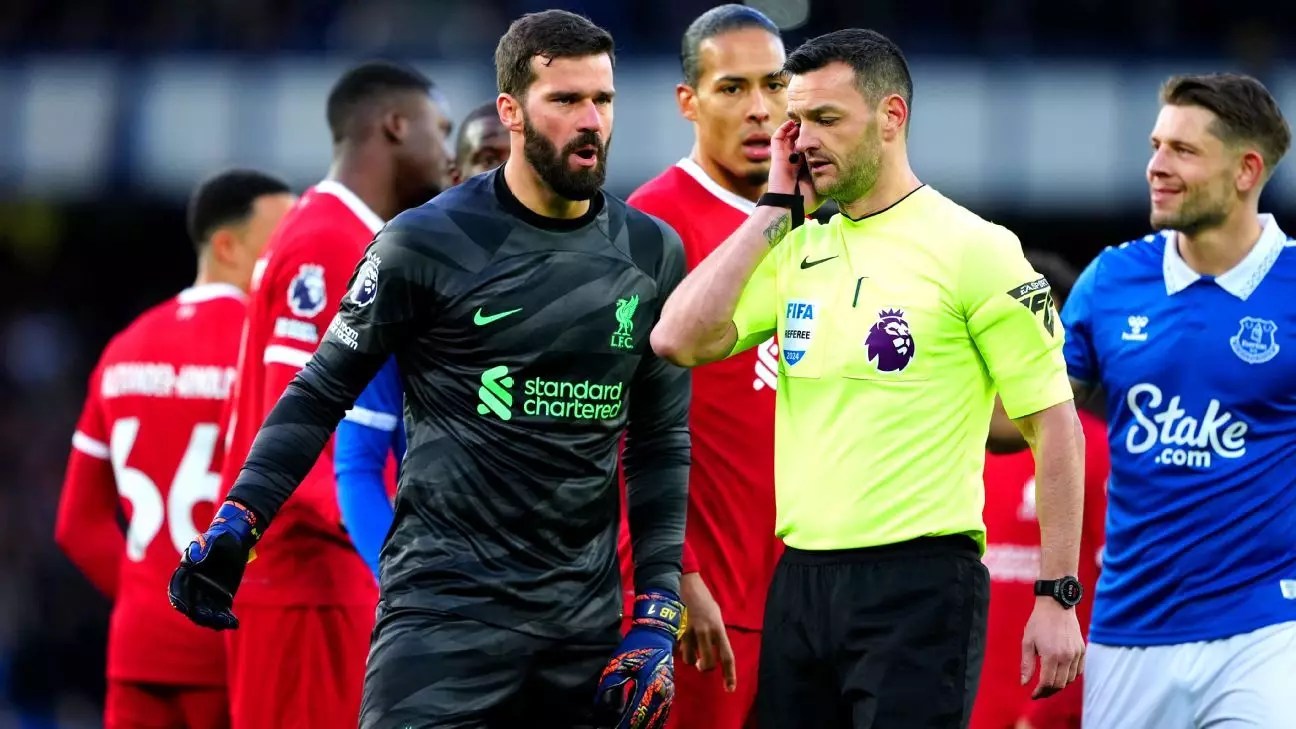Refereeing in English football has been under a cloud of scrutiny ever since the introduction of the Video Assistant Referee (VAR) system. The constant controversies and high-profile mistakes have eroded the trust and confidence of players, managers, and fans in the system. Despite efforts to improve and refine VAR, the negative perception seems to persist, creating a significant challenge for the authorities involved.
The infamous incident involving referee Simon Hooper’s erroneous decision during a Liverpool vs. Tottenham Hotspur match in September 2023 continues to haunt Premier League referees. The phrase “Well done, boys; good process” used by Hooper has become a symbol of the skepticism and criticism directed towards VAR in English football. The negative opinions and antipathy towards VAR have been deeply entrenched over five seasons of inconsistent decisions and lack of tangible progress.
Howard Webb, the chief refereeing officer, acknowledges the challenges in changing the negative perceptions surrounding VAR. Webb emphasizes that VAR was intended to intervene in clear situations that have a significant impact on the game, rather than being involved in every minor incident or contentious decision. However, the expectations of fans and stakeholders regarding VAR outcomes often lead to dissatisfaction and criticism, highlighting the difficulty of appeasing everyone.
The Premier League’s efforts to address the shortcomings of VAR have been met with mixed results. While the introduction of detailed live updates on VAR reviews during matchdays has been a step in the right direction, the league still grapples with defining standards like “clear and obvious” and implementing the concept of “referee’s call.” Despite attempts to manage expectations and clarify the decision-making process, the progress in changing the perception of VAR remains slow and challenging.
Speed of Reviews
One of the prominent issues with VAR in the Premier League has been the speed and efficiency of reviews compared to other leagues or competitions. The Euro 2024 tournament showcased faster and smoother VAR reviews, indicating that swift interventions lead to less controversy and fan dissatisfaction. The need for quicker decision-making and avoiding overanalysis is crucial in enhancing the effectiveness of VAR and reducing frustration among stakeholders.
Fan Opposition and League Response
The growing fan opposition to VAR, as seen in Scandinavia with Sweden’s fan-owned clubs and potential developments in Norway, highlights the need to consider the voices of supporters in determining the future of the system. The Premier League’s reliance on technology like semiautomated offside aims to improve decision accuracy but also underscores the importance of consistent and reliable refereeing standards. The disparity in referee representation at the elite level compared to other top leagues reflects the need for England to enhance and promote officiating talent effectively.
As the new season unfolds, the challenges and controversies surrounding VAR in English football persist. The ongoing efforts to refine VAR, redefine standards, and improve decision-making indicate a proactive approach to address the concerns raised by stakeholders. However, the ultimate test lies in reshaping the perception of refereeing in English football and restoring trust and confidence in the system while striving to meet the expectations of fans, players, and managers.


Leave a Reply